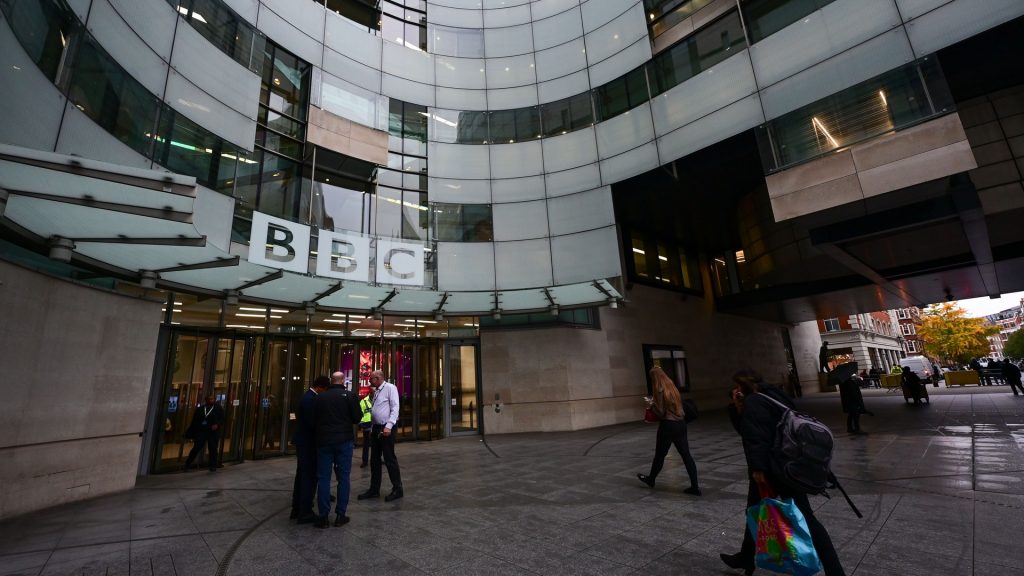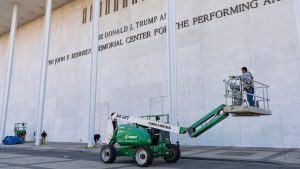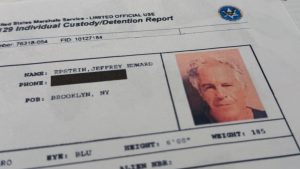Former BBC executive unravels Trump speech edit controversy

The British Broadcasting Corporation (BBC) is under scrutiny after an edit in one of its documentaries altered portions of President Donald Trump’s Jan. 6, 2021, speech. The edit, which combined two sections of the speech into a single cut, prompted accusations of misrepresentation and has led to legal threats from the White House.
Former BBC executive Richard Sambrook, who spent over 30 years at the outlet, told Straight Arrow News that he felt the edit was misleading. He described the process behind news editing in the U.K., and drew parallels with media practices in the United States.
Experienced oversight and edit fallout
Sambrook explained the editorial process for televised news and long-form content.
“In television, in daily news, as well as in long-form, of course, speeches and interviews have to be edited down,” Sambrook explained. “That’s custom practice and perfectly normal. However, there is a responsibility on the producers to make sure they don’t misrepresent what’s being said.”
He noted that multiple individuals should have reviewed the edit before it aired.
“I think there were definitely a number of people who should have caught it,” Sambrook said. “So there would have been a reporter, there would have been a producer, there would have been the picture editor, as we call them. Now, any one of those could have said, ‘Actually, this edit isn’t right.’ On top of that, there would have been an executive producer who would have had oversight over them, who again should have caught it.”
After The Telegraph reported on the alleged misleading edit, the BBC faced a “crisis” that included high-profile resignations and a public apology from the BBC board chairman. Sambrook compared it to previous crises he experienced at the outlet.
“I also had a crisis at the BBC when I was head of news,” Sambrook said. “When we fell out with the British government over their case for the war in Iraq. But I didn’t have to resign; I stayed on for another six years. So these crises do come and go.”
Partisan divides in media
He also highlighted the declining trust in media in both the U.S. and the U.K., and how that distrust has heightened scrutiny.
“We’ve seen trust in the media generally reduce much in line with the way it has in the States and in other European countries, certainly.”
Sambrook pointed out the political leanings of certain newspapers in the U.K. while noting that broadcast media is regulated to be impartial.
“Most of the newspapers are right-leaning and openly so, and broadcast is regulated by the U.K. to be impartial,” Sambrook said. “The Daily Telegraph is one of them. Daily Mail is the other obvious example, Rupert Murdoch’s papers, The Times and the Sunday Times, perhaps as well, spend quite a lot of time attacking broadcasts for being too left-wing. Broadcasters believe they are neutral and that’s where the tension generally lies.”
Funding structure adds scrutiny
The BBC’s funding model has also drawn attention. Similar to NPR and PBS in the U.S., the BBC receives public funding, but through a licensing fee.
“Everyone in the U.K. who has a TV has to pay a license fee… and that’s the main source of its funding. It’s viewed as public money, and BBC is more accountable, it’s not like a private corporation where the owners will say ‘Well, it’s our company, we’ll do what we want,’ and everybody in Britain sort of thinks the BBC is part of them and they own a slice of it so therefore the kind of accountability is that much higher.”
Media watchdog organizations like AdFontes and AllSides rate the BBC as centrist.
“Bias reviews of this outlet have fluctuated between Center and Lean Left results for years, AllSides wrote in their rating explanation. “BBC’s online news has a Center bias, however, BBC sometimes displays some Lean Left bias indicators.”
Sambrook emphasized that mistakes happen across news organizations, but timely acknowledgment is crucial to an outlet’s credibility.
“The BBC, like any news organization, makes mistakes sometimes. The important thing is to recognize them, and admit to them and put them right.”
Legal threats and next steps
President Trump has threatened to sue the BBC for defamation over the edited clip, demanding the documentary be removed and a personal apology. On Thursday, the BBC issued an apology but refuted any claims of defamation.
Funding and charter renewal
Another dimension to the BBC story involves its public funding. The organization receives support through a public charter, which is reviewed and renewed every 10 years. The current charter expires in 2027. The combination of political scrutiny over content and an upcoming charter review could have implications for the broadcaster’s future.
The post Former BBC executive unravels Trump speech edit controversy appeared first on Straight Arrow News.





